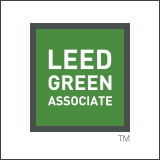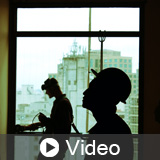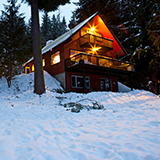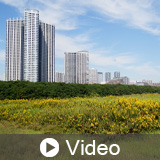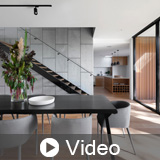Are you tired of sustainability webinars and workshops that ignore the elephant in the room? This course confronts environmental reality without corporate greenwashing or cheerful platitudes. We examine climate change, mass extinction, toxic building materials, and institutional failure through the lens of philosophical nihilism—not to surrender to despair, but to clear away false hope and find authentic pathways forward.

GreenCE’s mission is to support the necessary transition to a sustainable built environment by empowering design professionals to address the environmental, economic, and social impacts of buildings. GreenCE’s course catalog includes LEED exam preparation, continuing education to maintain your AIA or LEED credential, as well as specialty education focused on topics such as ADA/Barrier-Free requirements. We are committed to designing the highest quality continuing education programs in the construction industry.
Take One Of Our Online Course(s) Now!
$35.00 |
|
Deadly hurricanes, blistering heatwaves, melting ice caps, massive crop failures, catastrophic droughts, and significant economic losses are the result of carbon emissions, specifically in the form of carbon dioxide (CO2) and other greenhouse gases. Addressing carbon emissions is crucial to mitigating these devastating effects. Design professionals play a critical role in mitigating carbon emissions through their design decisions and practices. In this course, we explore the LEED Zero certification program and how it can help fight climate change.
$39.00 |
|
Embark on a captivating journey through urban landscapes in this innovative course that merges sustainability with the psychology of city living. Explore key concepts of deep topography and psychogeography, revealing their influence on urban criticism and human connectedness. Dive into LEED v4.1 BD+C strategies that enhance urban occupants' sense of place through walking, interaction with green spaces, and cultural preservation. We examine how thoughtful urban planning enhances the human experience and well-being.
$39.00 |
|
Welcome to an exploration of how space becomes a living, breathing performer in the grand theater of human experience. Spatial dramaturgy represents the fascinating intersection where architecture transcends mere shelter to become narrative, where interior design moves beyond aesthetics to choreograph human emotion and behavior. In this journey, we'll discover how the greatest architects and designers have wielded space as a storytelling medium, creating environments that don't just house activities but actively participate in shaping human experience.
$35.00 |
|
This comprehensive course examines the emergence and evolution of Eco Brutalism, a contemporary architectural movement that merges the bold, monolithic aesthetics of Brutalist architecture with cutting-edge sustainable design principles. Design professionals will explore how this innovative approach addresses modern environmental challenges while maintaining the dramatic visual impact characteristic of Brutalist design. The course investigates historical precedents and the integration of eco-brutalist principles with LEED v4.1 BD+C and ID+C strategies.
$45.00 |
|
In this one-hour course, we will explore the challenges of creating a sustainable cannabis facility that reduces energy consumption, water usage, and waste. We identify best practices for sustainable cannabis facilities and how hazards may affect building occupants.
$42.00 |
|
Whole building LCA and carbon analysis play a crucial role in promoting sustainable and low-carbon construction practices. By considering the entire life cycle of a building, these assessments help reduce environmental impacts and contribute to a more sustainable built environment. In this course we explore how project teams can use whole building LCA to reduce carbon for LEED v4.1 BD+C and ID+C projects.
$39.00 |
|
You're standing at the intersection of design and destiny. With buildings generating 40% of global carbon emissions, every material you specify and system you design shapes our planet's future. This intensive course transforms that responsibility into opportunity, equipping architects, engineers, and interior designers with practical decarbonization strategies for LEED v4.1.
$45.00 |
|
Digital overload is quietly undermining occupant health—and buildings are part of the problem. This course shows how design professionals can turn that challenge into a powerful opportunity. You’ll learn how to design “digital detox zones” that measurably improve focus, reduce stress, and enhance well-being using LEED and WELL strategies. This course goes beyond theory to show exactly how wellness-driven design decisions support acoustics, daylighting, and integrative process documentation.
$45.00 |
|
Sustainable kitchen design encompasses environmental, health, and social considerations. In this course, we explore innovative approaches that prioritize energy efficiency, the use of healthy materials, and the enhancement of overall well-being. As the demand for eco-friendly living spaces continues to rise, design professionals play a pivotal role in shaping the future of kitchen design. Our team discusses LEED v4.1 BD+C and ID+C strategies that can help design professionals create healthier and more sustainable kitchen spaces for building occupants.
$45.00 |
|
Embodied carbon is the hidden impact embedded within construction materials and products and contributes significantly to our carbon footprint. By understanding the implications of your specification decisions, you possess the key to not only reducing embodied carbon, but also creating resilient and environmentally conscious structures. In this course, we explore how LEED v4.1 BD+C, ID+C, and O+M ratings systems address embodied carbon and help reduce environmental impacts.
$39.00 |
|
What if the smallest intervention could transform an entire neighborhood? What if the spaces we design carry hidden psychological and cultural messages that either empower or exclude? This course takes you beyond traditional sustainability metrics to explore five theories that are reshaping how we think about responsible design. This course exposes uncomfortable truths—how seemingly innocent design choices may perpetuate inequality, exclude entire communities, and maintain systems of oppression that most design professionals may not recognize.
$35.00 |
|
In a world of escalating environmental crises and competing priorities, where does a design professional find the clarity and courage to champion truly sustainable solutions? The answer might be 2,300 years old. This course bridges ancient Stoic philosophy with contemporary sustainable design practice, offering a powerful ethical framework for navigating the complex challenges of our profession.
$35.00 |
|
Ready to revolutionize your design practice by partnering with the most powerful force in the universe? This dynamic course reveals how entropy—the same principle that governs stars, storms, and ecosystems—has been quietly shaping architecture's most beloved and resilient buildings for decades. Through engaging case studies of radical architects who embraced uncertainty, hands-on analysis of buildings that actually improve with age, and practical strategies for creating spaces that dance with time rather than resist it, you'll master the art of entropy-conscious design.
$35.00 |
|
In this course we describe how project teams can use Environmental Product Declarations (EPDs) for LEED v4.1 projects. Our team describes the environmental impacts referenced in EPDs and how these impacts may affect the planet and its inhabitants. We discuss how EPDs can contribute to the LEED v4.1 BD+C, ID+C, and O+M ratings systems to create sustainable buildings.
$45.00 |
|
The choices we make when specifying building materials can have significant effects on the planet and human health. The world is facing cataclysmic issues such as climate destabilization, pollution, biodiversity loss, deforestation, and greenhouse gases. Construction produces vast volumes of waste and consumes colossal amounts of energy. Design professionals can make a difference in minimizing the damage to the environment and human health by selecting better building materials.
$45.00 |
|
What professional responsibility do we bear for the environmental impact of our designs? In this thought-provoking course, participants will delve into the critical ethical dimensions of sustainable design that shape our built environment for generations to come. Explore how the AIA and ASCE Codes of Ethics translate into real-world obligations. What are our responsibilities in material sourcing? When budgets tighten, how do we defend sustainability without compromising project viability?
$35.00 |
|
This comprehensive course equips design professionals with essential knowledge about per- and polyfluoroalkyl substances (PFAS), commonly known as forever chemicals, and their pervasive presence in building materials. You'll discover how these persistent chemicals impact human health and the environment while learning practical strategies to identify and avoid PFAS-containing products in your projects.
$45.00 |
|
What if buildings weren’t just structures—but vessels for memory, imagination, and the ghosts of what might have been? Join us as we explore how architecture holds onto dreams and disappointments, carrying the echoes of modernism’s bold promises of infinite progress. We'll look at sustainable design not just as a technical solution, but as a haunted practice—one shaped by the failures of the past and the urgent demands of the future. Step into spaces where time bends: where ancient materials meet digital futures, where ruins don’t just decay—they teach us resilience.
$35.00 |
This product is no longer available for purchase. If you have already purchased this product you may still access the course and quiz content.Use the LEED practice exam questions to assess your readiness to take the LEED Green Associate exam and LEED AP exam. The LEED practice questions simulate the actual exam and will help you prepare. The package includes 400 LEED practice questions for the LEED Green Associate Exam as well as 100 LEED practice questions for the LEED AP BD+C exam. $29.00 |
This product is no longer available for purchase. If you have already purchased this product you may still access the course and quiz content.Use the LEED practice exam questions to assess your readiness to take the LEED Green Associate exam and LEED AP exam. The LEED practice questions simulate the actual exam and will help you prepare. The package includes 400 LEED practice questions for the LEED Green Associate Exam as well as 100 LEED practice questions for the LEED AP BD+C exam. $29.00 |
This product is no longer available for purchase. If you have already purchased this product you may still access the course and quiz content.Use the LEED practice exam questions to assess your readiness to take the LEED Green Associate exam and LEED AP exam. The LEED practice questions simulate the actual exam and will help you prepare. The package includes 400 LEED practice questions for the LEED Green Associate Exam as well as 100 LEED practice questions for the LEED AP BD+C exam. $29.00 |
This product is no longer available for purchase. If you have already purchased this product you may still access the course and quiz content.Use the LEED practice exam questions to assess your readiness to take the LEED Green Associate exam and LEED AP exam. The LEED practice questions simulate the actual exam and will help you prepare. The package includes 400 LEED practice questions for the LEED Green Associate Exam as well as 100 LEED practice questions for the LEED AP BD+C exam. $29.00 |
|
Welcome to a journey that will fundamentally challenge how you think about sustainable design. This course pushes far beyond the conventional net-zero checklists that have dominated green building practice for the past two decades. Instead, we're going to explore what happens when buildings become living entities, when cities give back more than they take, and when the boundary between natural and artificial dissolves entirely. We'll dive deep into emerging technologies and philosophies that sound like science fiction but are rapidly becoming reality.
$45.00 |
|
In this course, we explore strategies to improve indoor air quality and how to achieve the LEED v4.1 BD+C and ID+C EQ Low-Emitting Materials credit. In addition, we review the applicable requirements such as (CDPH) Standard Method v1.2–2017. Finally, we discuss how buildings with excellent indoor environmental quality protect the health of building occupants.
$45.00 |
|
Welcome to this comprehensive exploration of Stockholm Wood City, one of the world's most ambitious mass timber developments. This course examines how this groundbreaking project is reshaping urban construction through innovative use of Cross-Laminated Timber (CLT) and other engineered wood products. We'll dive deep into the project's environmental philosophy, technical specifications, and construction methodologies while exploring how mass timber construction aligns with LEED v4.1 BD+C and ID+C rating systems.
$45.00 |
|
Mass timber is revolutionizing modern architecture, offering design professionals an unprecedented opportunity to create buildings that actively fight climate change while delivering superior occupant experiences. This cutting-edge construction method is transforming skylines from Portland to Stockholm, enabling architects to build taller, faster, and more sustainably than ever before.
$45.00 |
|
This one hour documentary is part two of a case study focusing on an off the grid residence in northern Washington. The course explores how to calculate a solar array, PV panel installation strategies for different types of roofs, harvesting renewable materials on site, and composting toilets vs. septic tanks. Exclusive interviews with solar pioneers Bill and Lanny Sinkin provide insight into the future of solar energy. Interviews with the owners, architect and the construction team will provide an informative narrative on lessons learned during the process.
$19.00 |
|
In this presentation, we explore how deadly diseases have impacted cities and affected urban planning. We discuss how urbanization contributes to pandemics and how diseases like the bubonic plague, Spanish influenza, and SARS changed how cities operate. Our team will review how hospitals, clinics, and other healthcare projects can decrease risks to patients and healthcare workers. Finally, we will examine how sustainable development may help decrease pandemic risks for future global catastrophes.
$29.00 |
|
Welcome to Earth's most terrifying reality show - and you're already starring in it. Right now, as you read this, ancient permafrost is melting and releasing methane bombs that have been sleeping for millennia. Ice sheets the size of countries are collapsing into the ocean. Entire species are vanishing before we even discover them. We've pushed the planet past multiple tipping points, and the Earth system is now hunting us back with unprecedented heat waves, super storms, and ecological collapse. This isn't science fiction - this is your life.
$35.00 |
|
In this course, we describe how design professionals can achieve the LEED v4.1 BD+C and O+M Rainwater Management Credit. In addition, we discuss green infrastructure and low-impact development strategies and how they can help for project sites.
$45.00 |
|
The impending climate crisis casts a looming shadow over our planet, and the responsibility to avert catastrophe falls upon us all. Design professionals can wield their creative powers to conceive sustainable, resilient, and regenerative solutions before it's too late. Diverting construction waste from landfills and promoting recycling, reuse, and responsible disposal practices can significantly contribute to reducing carbon emissions.
$39.00 |
|
In a world where climate change rages unchecked, the skies weep acid rain, monstrous storms destroy coastal cities, vibrant communities turn into desert wastelands, millions flee their homes, entire species go extinct, and ecosystems collapse. Renewable energy can play a vital role in addressing these challenges and mitigating the worst effects of climate change. In this course, we explore how renewable energy can help reduce carbon emissions for LEED v4.1 BD+C and ID+C projects and reduce environmental impacts.
$39.00 |
|
In this course, we describe how design professionals can achieve the LEED v4.1 BD+C Sensitive Land Protection credit and reduce environmental impacts for building sites. We review sensitive land areas including wildlife habitat, wetlands, prime farmland, floodplains, and water bodies.
$45.00 |
|
In this course, we explain how to achieve the LEED v4.1 BD+C and ID+C MR: Sourcing of Raw Materials credit and how to specify environmentally friendly building materials. We review FSC certification, recycled content, and how bio-based materials could change the future of construction.
$45.00 |
|
Ever wonder why that fluorescent-lit hallway gives you the creeps? Turns out, millions of people on the internet figured it out. When an anonymous internet post about endless yellow office spaces went viral, it accidentally created one of the largest public engagements with architectural psychology. This course explores how The Backrooms phenomenon introduced liminal space theory to the masses and what it means for creating better buildings.
$35.00 |
|
What do a 2,400-year-old philosopher and today’s toughest client meetings have in common? More than you think. In this course, you’ll discover how ancient Greek Cynic philosophy can help you defuse conflict, win over clients, and keep your sustainable design goals on track. Packed with real-world case studies and practical tools, this course shows architects, engineers, and contractors how to navigate high-stakes conversations about eco-friendly materials, resolve team tensions when budgets clash with sustainability, and build long-term client trust through radical honesty and clarity.
$35.00 |
|
Discover a radical new lens on design in this course on material vitalism—an approach that redefines materials not as passive stuff, but as active participants in shaping architecture. We'll explore how matter itself can tell stories, shape experiences, and even guide design choices, from the weathered warmth of timber to the self-organizing intelligence of natural systems. Blending philosophy, material science, and real-world examples, this course offers not just theory, but a practical, sustainable framework for thinking with materials.
$35.00 |
|
We're facing an unprecedented crisis of connection in our communities. While we've become more digitally linked than ever before, genuine human connection is becoming increasingly rare. As a design professional, you hold extraordinary power to address this crisis through the spaces you create. Your buildings don't just house activities; they shape the social patterns that determine whether communities thrive or struggle.
$35.00 |
|
Your brain is lying to you about sound. What you hear isn't what's actually there—it's a carefully constructed illusion your neural circuitry builds in milliseconds. Welcome to the hidden dimension of architecture. This course cracks open the secret world where neuroscience collides with building design. You'll discover why certain rooms make people anxious without knowing why. How a hospital corridor can accelerate healing—or slow it down. Why your open office design might be sabotaging productivity at the cellular level.
$45.00 |
|
There's a phantom haunting your LEED buildings. It sabotages productivity. Triggers stress. Tanks satisfaction scores. Yet it appears on no energy model, no daylighting analysis, no material specification. Sound—the forgotten dimension—is writing the soundtrack of failure in even your best projects. Discover how composer R. Murray Schafer unlocked the hidden science of acoustic ecology in the 1960s, and why his innovative framework is the missing key for many sustainable design projects.
$45.00 |
|
This podcast course provides a comprehensive exploration of sustainable design and carbon management in the built environment. Participants will learn to differentiate between operational and embodied carbon, utilizing various tools and metrics for carbon design measures. A key focus will be discussing how Environmental Product Declarations (EPDs) aid design professionals and building product manufacturers in achieving their sustainability goals.
FREE |
|
Welcome to an exciting journey through the revolutionary world of bio-based circular materials that are reshaping how we design and build. This course explores innovative construction materials derived from agricultural waste, fungi, and renewable plant sources that offer design professionals unprecedented opportunities to create environmentally responsible buildings.
$45.00 |
|
Imagine walking through a city where every crack in the sidewalk, every forgotten alleyway, and every hidden elevation tells a story more complex and fascinating than any guidebook could ever reveal. Welcome to the world of deep topography, an interdisciplinary methodology for understanding spatial environments through multi-sensory, phenomenological exploration of geographical landscapes. Discover how LEED v4.1 BD+C strategies prioritize pedestrian-friendly designs and green spaces, ensuring cities are functional, culturally rich, and environmentally sustainable.
$39.00 |
|
In this course, we explain how design professionals can achieve the LEED v4.1 BD+C Indoor Water Use Reduction Prerequisite. We discuss strategies to help reduce potable water use in buildings such as specifying WaterSense labeled products. In addition, our team discusses challenges regarding the nation’s water supply and the need to update water infrastructure.
$45.00 |
|
In this presentation, we explore the WELL Building Standard and how it can advance human health and well-being. WELL v2 is an evidence-based, technically robust, resilient rating system that can help design professionals create inspiring and healthy buildings. Our team discusses the ten concepts of WELL v2 and performance testing that can help improve occupant health. We examine WELL certified projects and their attributes that make them healthy buildings. This introductory course is aimed at design professionals who want a basic overview of the WELL Building Standard.
$35.00 |
|
The year is 1414. Europe teeters on the brink of collapse—cities drowning in their own filth, forests stripped bare, ancient wisdom crumbling into superstition. In a forgotten Swiss monastery, a Vatican spy named Poggio Bracciolini makes a discovery that will shake the foundations of civilization. Hidden beneath centuries of dust lies the ultimate treasure: a manual for architectural mastery, written by written by Marcus Vitruvius Pollio, a Roman engineer whose principles would change the world. But this is no ordinary manuscript.
$35.00 |
|
Ready to design spaces that transform communities? This course reveals how the world's most successful gathering places—from Parisian cafés to modern co-working hubs—create the social magic that turns strangers into neighbors and neighborhoods into thriving communities. You'll discover the hidden design principles behind spaces people can't resist visiting, master sustainable strategies that reduce operating costs while boosting occupant wellbeing and learn implementation tactics that ensure your third place projects actually serve their communities long-term.
$35.00 |




















